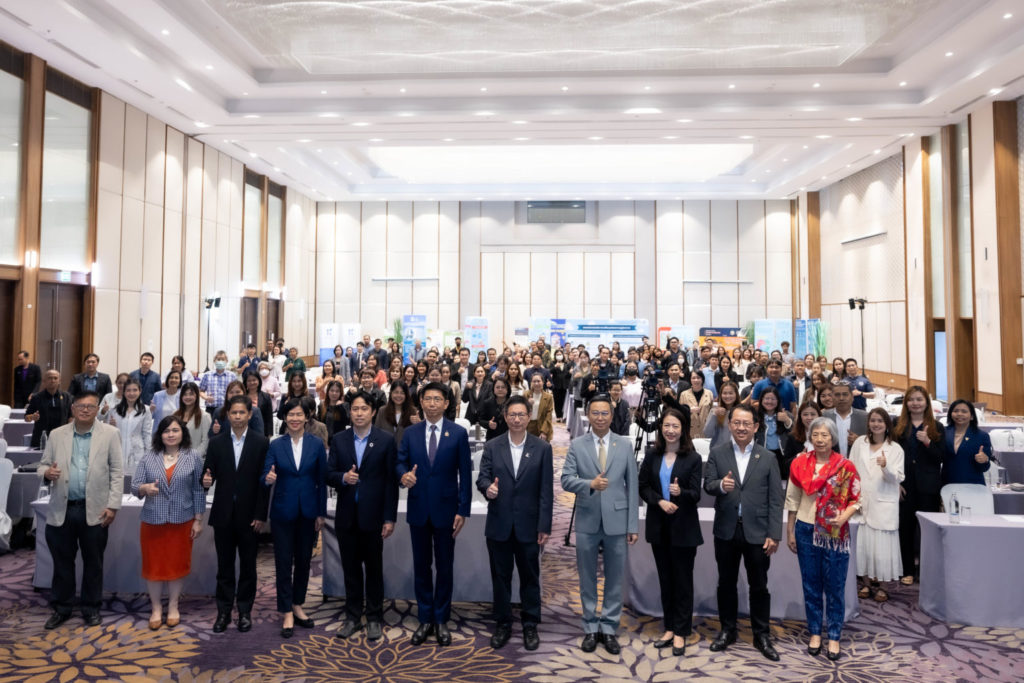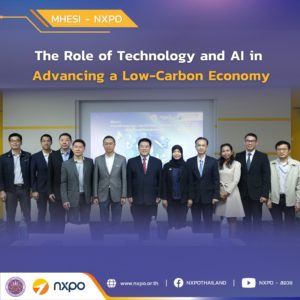On 20 March 2025, MHESI-NXPO, in collaboration with the Department of Climate Change and Environment (DCCE), Thailand Science Research Innovation (TSRI), and the Council of University Presidents of Thailand (CUPT), announced a partnership to strengthen higher education, research, technology, and innovation in climate change. This collaboration aims to set strategic directions to enhance the country’s research capacity in this critical area. Dr. Surachai Sathitkunarat, President of NXPO, participated in the event and delivered an address on “Policy Directions for Advancing Climate Research and Innovation.”
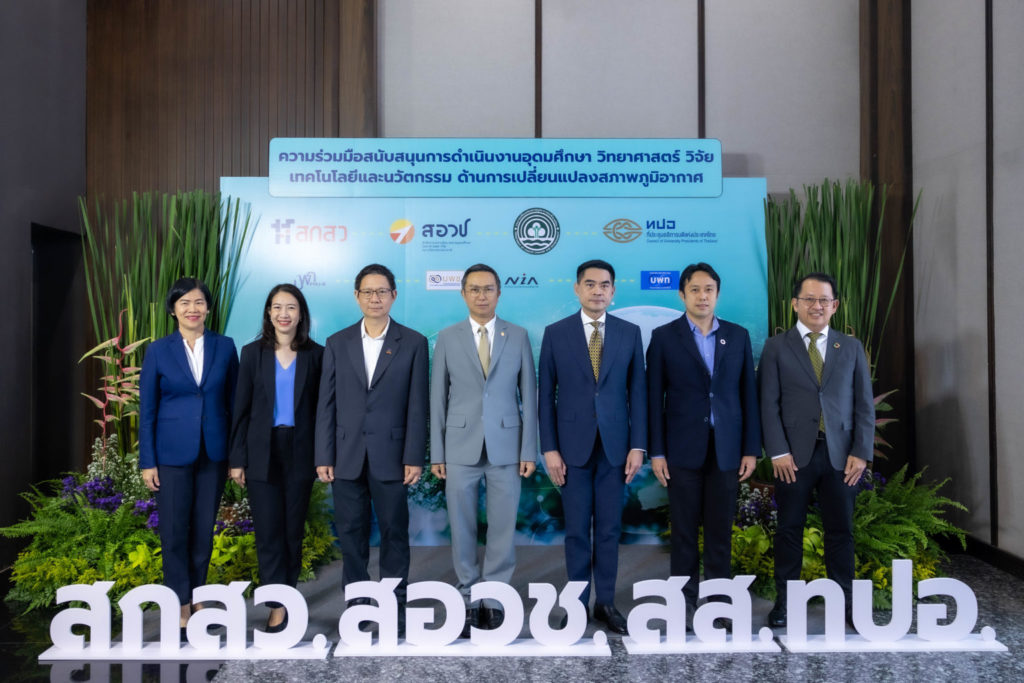
Dr. Surachai stated that all four organizations recognize the importance of research and innovation in driving climate action. Thailand has been restructuring its research system to improve effectiveness, including the establishment of research funding programs spanning fundamental research to applied solutions. NXPO plays an active role in shaping the higher education and science policy, identifying key research priorities for Thailand, with climate change being one of the most critical issues today.
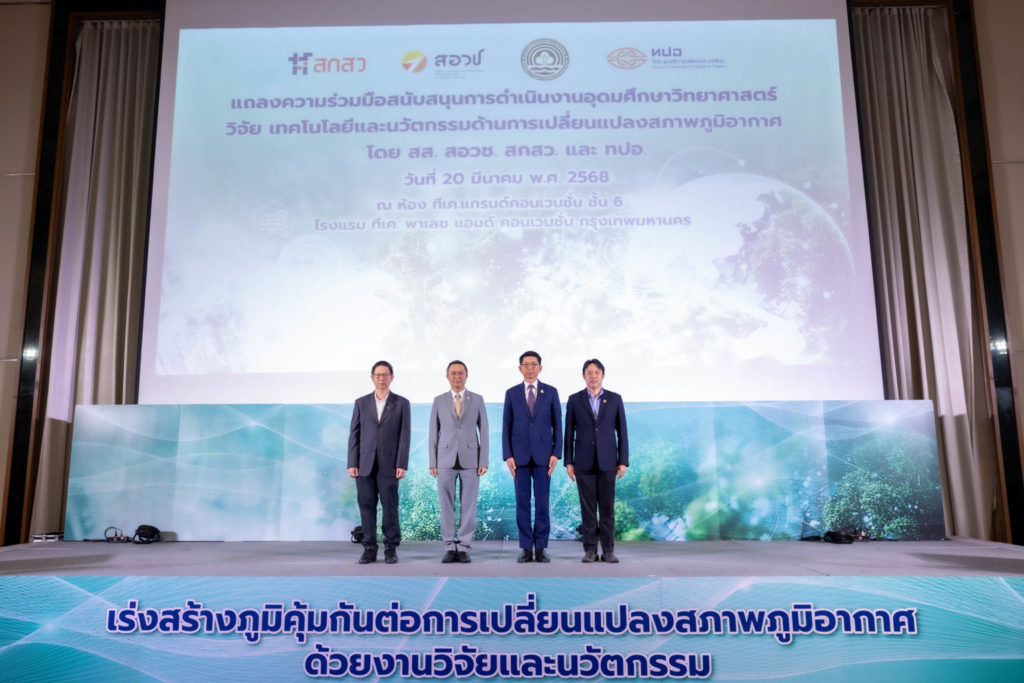
“Thailand must continue to develop climate knowledge and innovation to serve as a reference in global discussions, particularly at the Conference of the Parties (COP) to the UN Framework Convention on Climate Change (UNFCCC), where NXPO has been supporting Thailand’s negotiation team for over a decade,” Dr. Surachai noted.
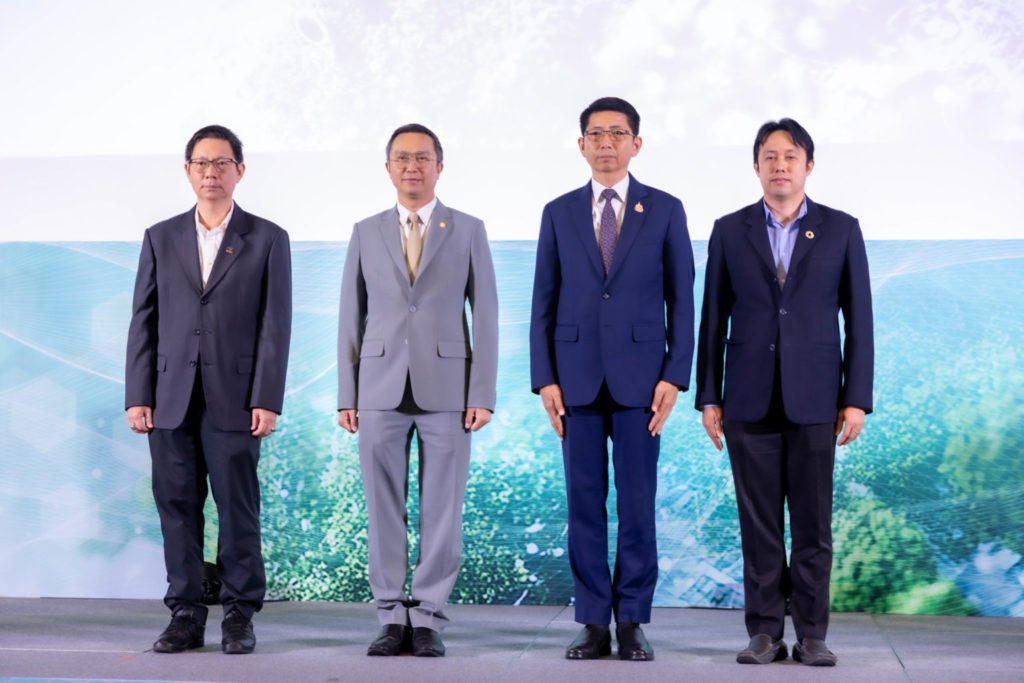
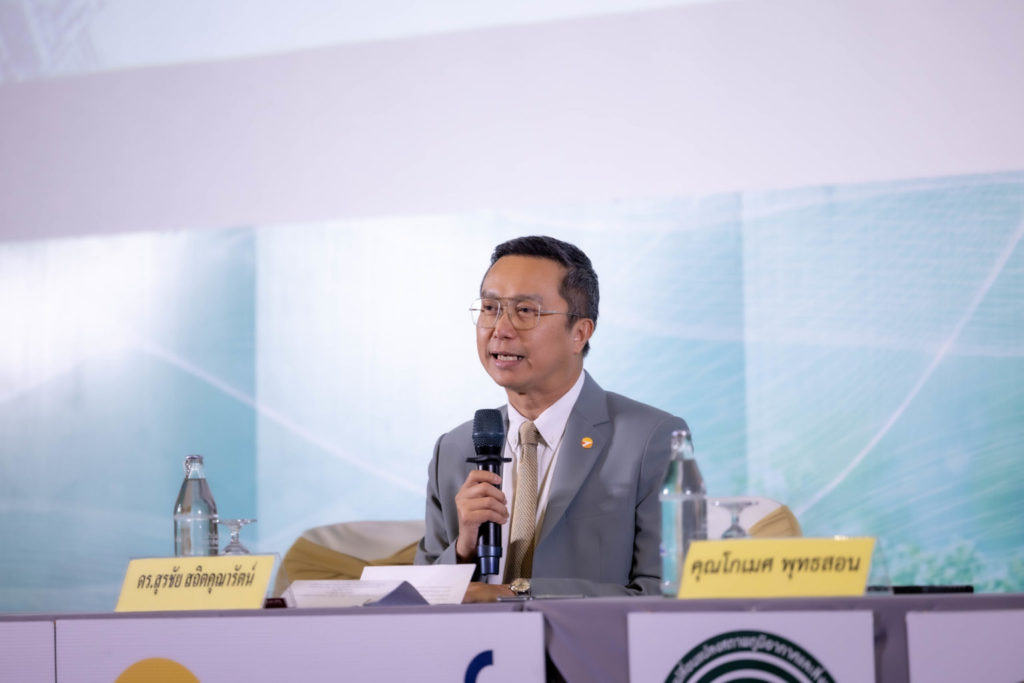
As Thailand’s National Designated Entity (NDE) for climate technology development and transfer under the UNFCCC, NXPO facilitates technology transfer, particularly in adapting technologies from developed nations to fit Thailand’s needs. While many technologies exist, localization is often required for practical implementation.
NXPO also leads the development of Technology Needs Assessment (TNA), supported by the Global Environment Facility (GEF). This effort involves close collaboration with DCCE, TSRI, CUPT, and industry stakeholders, ensuring alignment with national priorities and future technology investments.
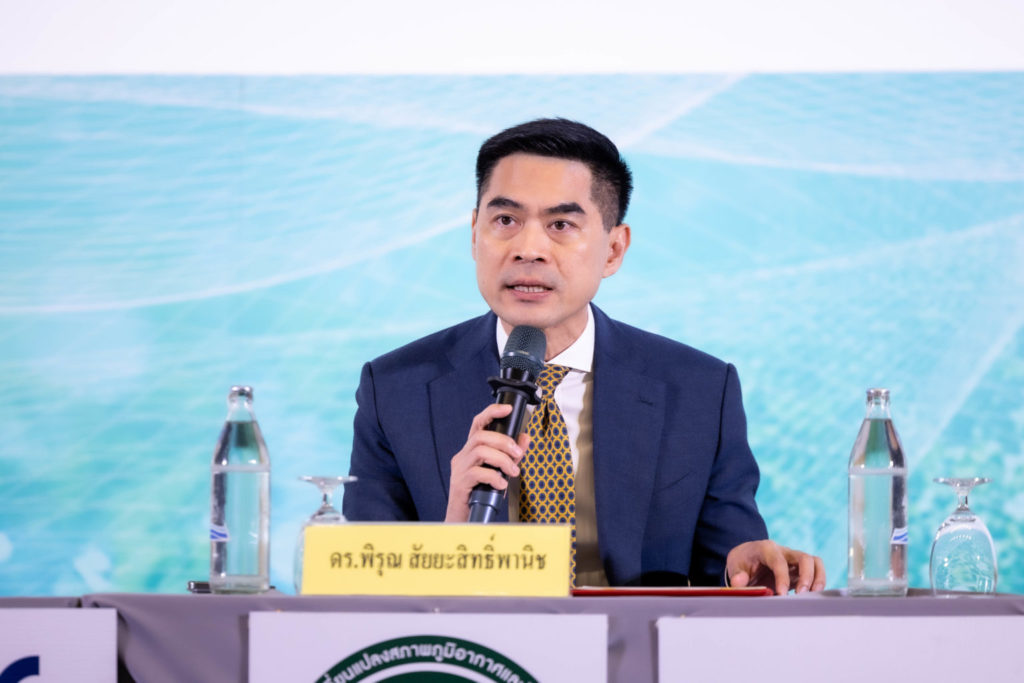
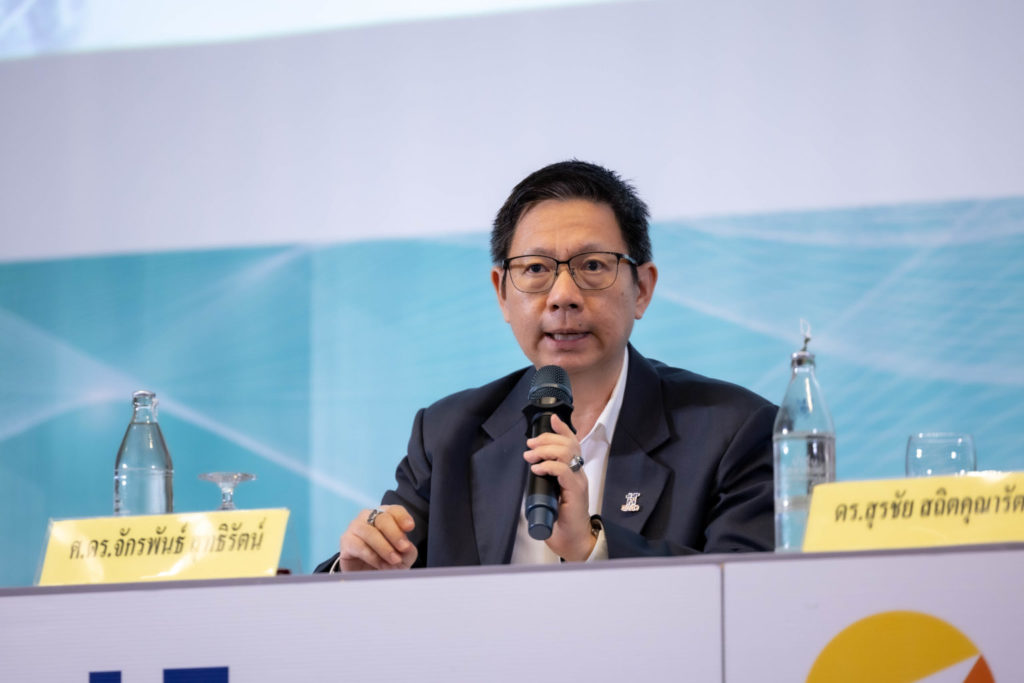
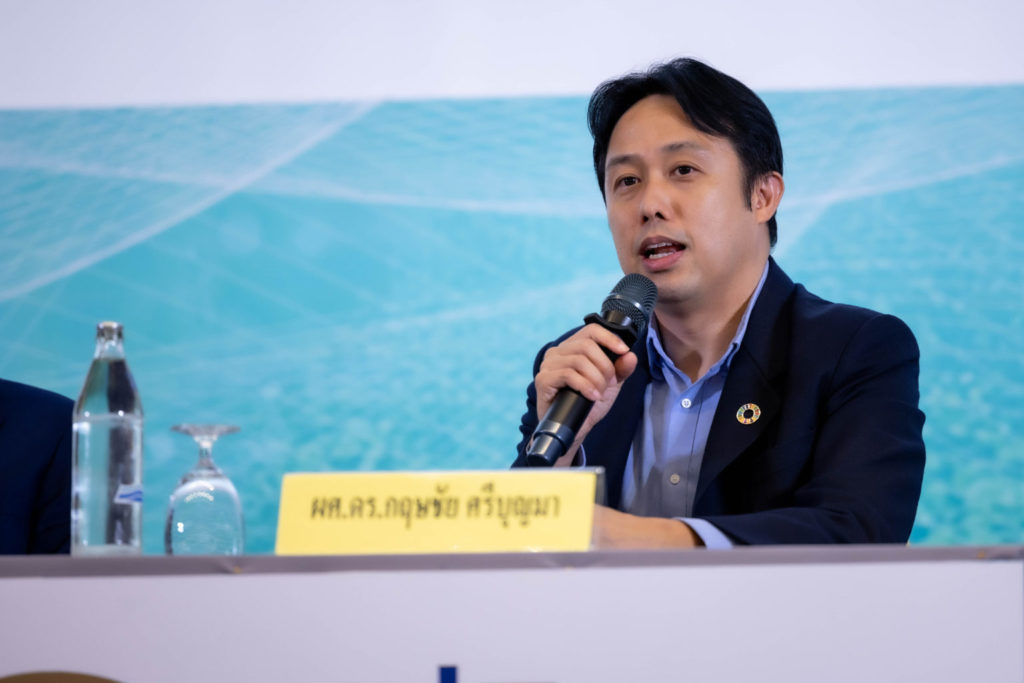
Assoc. Prof. Wongkot Wongsapai, Vice President of NXPO, participated in a panel discussion on the climate change research framework, highlighting MHESI’s key initiatives supporting the government’s net zero goals. These include the Green Talent Creation and the Net Zero Campus launched in 2024 as a model for communities, society, industries, and the service sector in achieving net zero emissions. Under these initiatives, universities and public research organizations not only lead by example but also extend their support to other sectors.
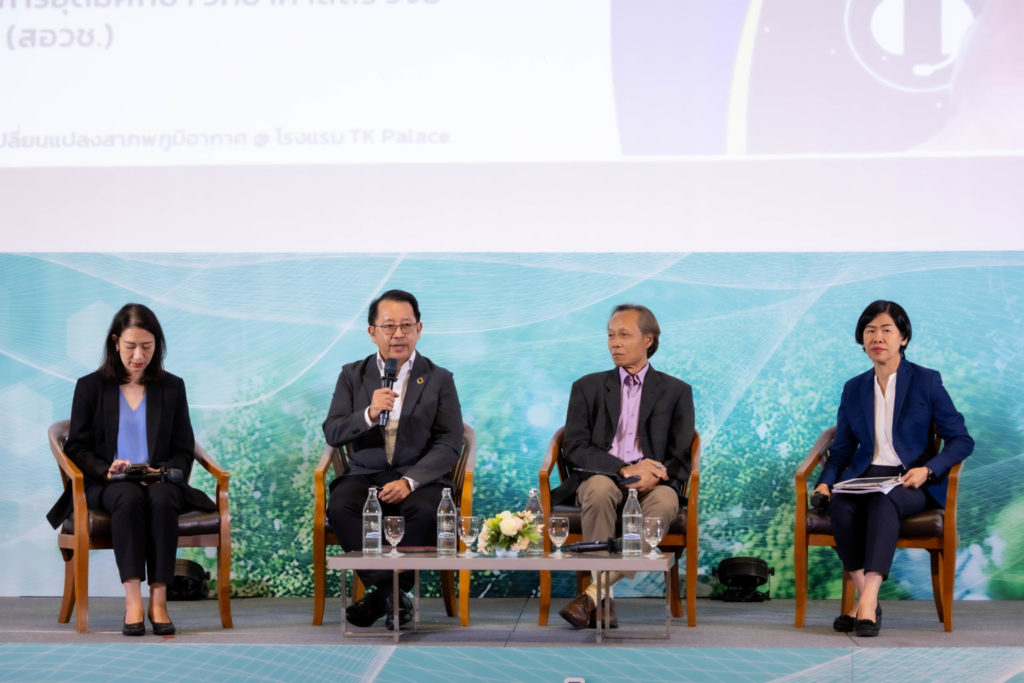
Dr. Wongkot outlined various mechanisms to support Thailand’s carbon neutrality and net zero goals. The collaboration mechanism brings together universities and research organizations to form a network. The technology development and transfer mechanism provides a platform for technology innovation, knowledge transfer, and the development of climate technology roadmaps. The financial mechanism involves facilitating co-investment in research, technology, and innovation, as well as supporting scale-up and demonstration projects through greenhouse gas reduction innovation networks.
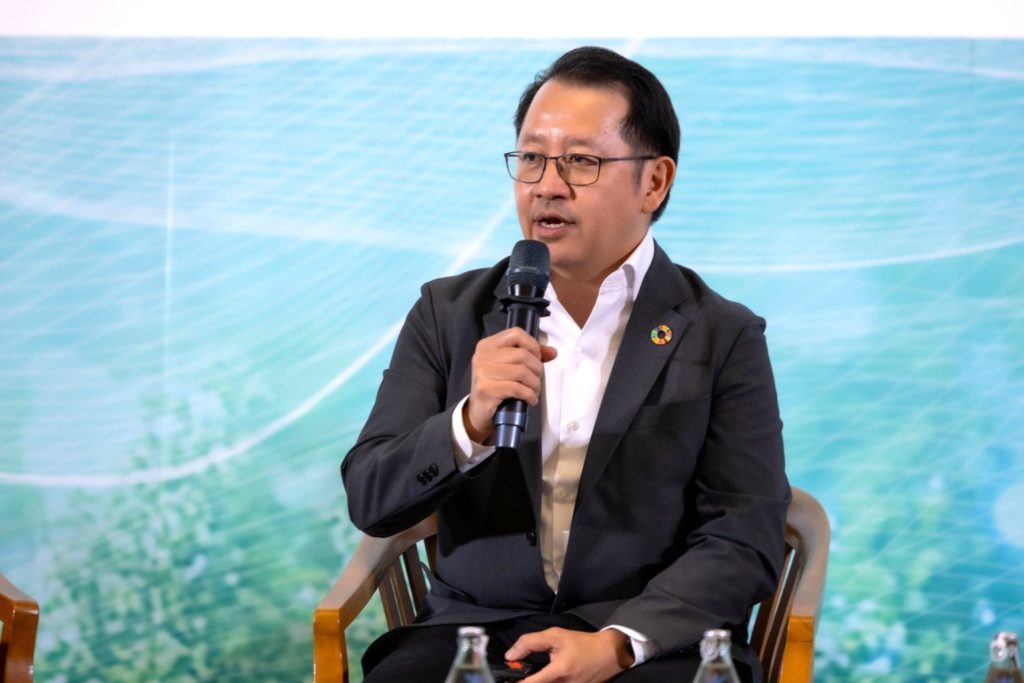
NXPO is actively supporting universities in their transition to net zero campuses, developing clear pathways for emissions reduction. Since early 2024, this initiative has been piloted in 50 universities, with an emissions monitoring platform already in place and plans for verification processes underway. Additionally, NXPO extends support to industry-led net-zero city models (Sandbox projects) in areas such as Saraburi and Mae Moh, with ongoing expansion efforts.
Dr. Wongkot underscored the urgency of climate action, stressing that both mitigation and adaptation strategies are essential. Key technologies for achieving net zero include carbon capture, utilization, and storage (CCUS), hydrogen, electric vehicles & battery technology, circular economy, and nature-based solutions (NbS). However, financial constraints remain a significant hurdle. To accelerate adoption, additional financial mechanisms must be explored to support these critical technologies.
“DCCE’s mission is vital, impacting economic growth, environmental security, and sustainability. Effective planning and execution are key to creating real impact. All stakeholders must collaborate, actively engage, and share successes to drive Thailand toward its net zero goals,” Dr. Wongkot concluded.
